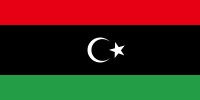 Two weeks ago Qmuze mused about America’s role in the Arab uprisings, saying:
Two weeks ago Qmuze mused about America’s role in the Arab uprisings, saying:
“As Libya turns increasingly violent, Mr. Obama should continue to champion freedom and democracy but let, in fact encourage, the Arab world to step-in to prevent any violence. This is an inflection point: Islam is due for a revolution, an enlightenment, indeed a trip to modernity, but America can not force it, it has to come from within.”
A mere eleven days later the United States had built an impressive coalition — France and Great Britain were “leading” the charge, the Arab league was on board, and surprisingly, Russia and China had abstained, rather than objected when a resolution to enforce a no fly zone over Libya was voted on at the U.N. Security Council. On Saturday missiles flew and bombs were dropped.
Clearly, Mr. Obama does not read Qmuze.
By Monday the Arab League was backtracking, the Allies were arguing, and Putin was comparing the West to “medieval crusaders.” Obama was in South America trying to take the focus off of the United States — a well-intentioned effort to change our world-reputation for the better, and to get would-be terrorist off our scent. Instead, his efforts came across more like a small child that plays hide and seek by covering his own face in hopes that he can’t be seen. Everyone, including the terrorists, knows that America is the country that will do the heavy lifting, spend the most money, and suffer the most blame for anything that goes wrong.
Winning has not been defined: the United Nations says the mission is humanitarian — to prevent civilian deaths; the U.S. says Qaddafi must go. (Note: If your mission is not clearly defined it becomes very difficult to have an exit stategy.) No one knows what will happen if Qaddafi barricades himself in his bunker with his billions, or if he does go, who will lead Libya. No doubt that it would be hard to replace Qaddafi with someone more evil, but it’s important to note that Libya is tribal and there’s a good chance that civil war would continue without him.
Will the U.S. back the civilian uprisings in Saudi Arabia, Bahrain and Yemen? The Saudis feed our oil habit, our Navy’s fifth fleet is strategically located in Bahrain, and the government of Yemen has helped us fight terrorism — the U.S. government does not want to bump up against the governments of these countries. This begs the question: Can military intervention be considered humanitarian if it is applied unevenly?
My grandfather once told me a story about coming out of a movie theater to find a man beating a woman that appeared to be his wife or girlfriend. The women writhed on the ground as the man kicked and punched her. My grandfather pulled the man off of the woman and warned him not to touch her again. He then went over to the woman, helped her up and offered her his starched and monogrammed handkerchief. She wiped the blood from her face, drew back and punched my grandfather in his eye, and then walked off with the man that had beaten her.
The moral of the story: Helping the rebels in Libya fend off a madman may look like the humanitarian thing to do, but in the end, all we may have to show for our good deed is a big, black eye.

 Follow Qmuze...
Follow Qmuze...
“I swore never to be silent whenever and wherever human beings endure suffering and humiliation. We must always take sides.”~Elie Wiesel
I love that quote by Elie Wiesel who survived Auschwitz. It makes me proud of your grandfather for doing that. So many times in San Francisco, I have witnessed fighting on the buses, have sometimes stepped in, and sometimes have gotten the bus driver to pull over and force people off when they are abusive. It always amazes me when people sit around dumbfounded and do nothing at all. It’s frightening–because if they’ll do that over a small incident on the bus, then they’ll do it over big things when their reputations and lives are at stake.
However, I digress. The above paragraph has nothing to do with the situation in Libya. I find the entire political outlook from the United States to be confusing. I’m not the brightest when it comes to politics, but I do think that the U.S. needs to stop putting its nose in other people’s business. If they did so, money spent elsewhere could even be spent here at home, where so many are still out of work, where many do not have health care, where schools and school programs have been shut down because of budget cuts. These political endeavors by the government are more about power, less about compassion, and not about love. If you take love and compassion out of the mix when trying to accomplish something good–what really are you accomplishing? Does Justice prevail?